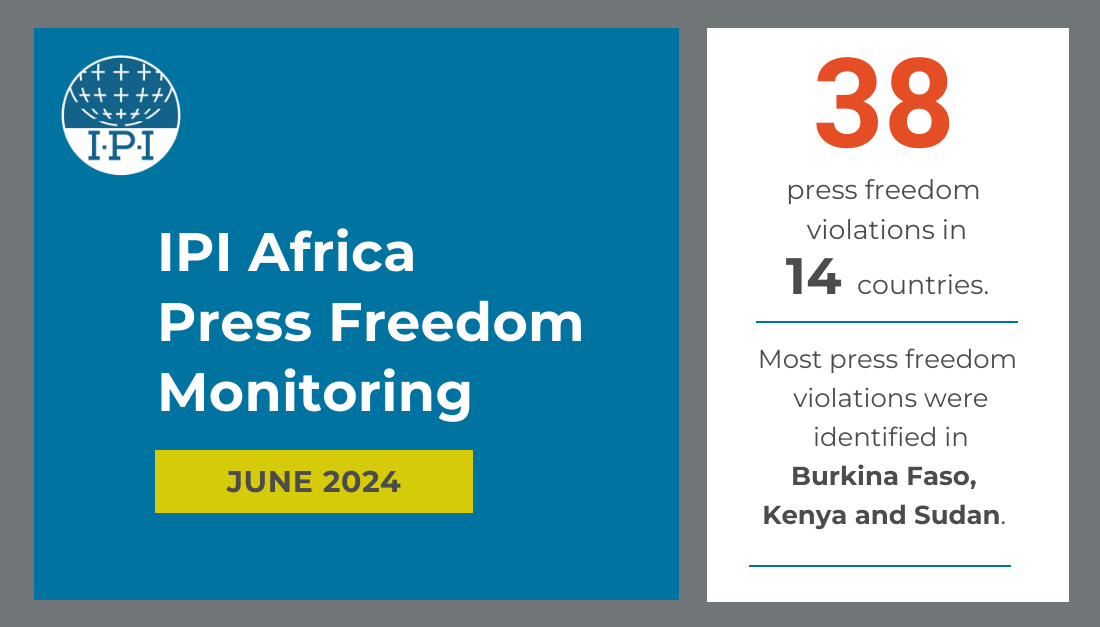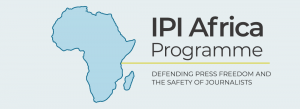In June 2024, IPI documented at least 38 violations or threats to press freedom in 14 countries in sub-Saharan Africa. Cases of physical assault, arrests, and detention of journalists were the most frequent violations recorded, followed by state-sponsored censorship of critical media. The highest number of violations were documented in Burkina Faso and Kenya. State actors remain the main perpetrators, responsible for 95 percent of the noted violations.
DOWNLOAD THE FACTSHEET HERE (PDF FILE)
Journalists continue to be among the victims of the ongoingkl conflict in Sudan. In June 2024, IPI documented four cases of killed journalists. On June 4, journalist Muawiya Abdel Razek was killed in Khartoum together with his three siblings by elements of the Rapid Support Force (RSF) during a raid on his home. The following day, June 5, journalist Makawi Mohamed Ahmed was also reported to have been killed by the RSF. Alaadin Ali Mohamed, a journalist working with Madani Radio in South Al-Jazira, was also killed by the RSF on June 22 while freelance journalist Ibrahim Abdullah was killed on June 28. Due to the lack of investigations into these killings, it is not yet clear whether or not these journalists were targeted for their work.
In Burkina Faso, the press freedom situation continues to deteriorate under the military-led regime. On June 18, the media regulatory body, Conseil Supérieur de Communication (CSC), suspended the international broadcaster TV5 Monde Afrique, based in France, for six months and imposed a fine equivalent to about 75,000 euros. The CSC accused TV5 Monde of disseminating “malicious insinuations” and “disinformation” on the transitional government. The sanction was imposed following the channel’s interview of Newton Ahmed Barry, a critic of the military regime. In addition, CSC suspended local newspaper L’Evenement and television program 7Infos of BF1. Meanwhile, there are growing concerns about the safety of journalists.Three journalists – Adama Bayala, Serge Atiana Oulon, and Kalifara Séré – perceived as critics of the transitional authorities were reportedly kidnapped or abducted by the security forces or sympathizers of the regime. Their whereabouts remain unknown.
During the recent anti-government protests in Kenya, several journalists and media outlets were targets of attacks from both the security forces and protestors. IPI documented at least 12 cases of attacks on journalists, including assault and detention. For instance, on June 18 Associated Press reporters Joe Muhia and Iddi Ali Juma were among several journalists assaulted or detained by anti-riot forces. In addition, the internet was also disrupted on June 25 by the authorities to frustrate the movement of the anti-finance bill protests.
Elsewhere, in Niger, authorities have adopted additional measures to enforce the already detrimental cybercrime law in an effort to crack down further on criticism and dissidence online. On June 7, the military regime amended the controversial cybercrime law by introducing prison terms of up to five years and hefty fines of close to 8,000 euros for online defamation.

